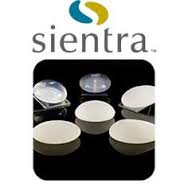Breast implants in the United States are commerically available from three manufacturers, Allergan, Mentor and Sientra. The newest provider is that of Sientra which has been selling their breast implants only since 2012. Although its corporate headquarters are in California, Sientra has its implants manufactured in Brazil. This manufacturing facility produces Silimed breast implants which are used around the world and are the most common type of breast implant in many countries.

Last month Sientra voluntarily put a moratorium on their products because of concerns about issues at the manufacturing plant in Brazil. This was not an FDA action or requirement and there is no known safety issue for patients. The origin of these concerns stem from regulators in Europe where they suspended sales of Silimed implants although there has not been any identifiable patient safety issue. In a prospective action, Sientra stepped forward and voluntarily suspended U.S. sales until the concerns are clarified and any problems identified solved. This has left plastic surgeons scrambling to explain the situation to their patients. It is also caused breast augmentation patients already scheduled to choose a different breast implant manufacturer for their surgery.
The lack of any known safety issues makes this action by Sientra a potentially confusing issue for patients. To the best of my knowledge this whole event stems from the finding of microscopic particles discovered on the surface of the breast implants. What these particles are and their significance is unknown. But until their source could be determined, the manufacturing facility has stopped producing implants for now. It is my understanding that Sientra’s internal investigation has shown that these particles are silicon which is a normal and harmless constituent of the silicone polymer used in breast implants.
But to the credit of Sientra, they voluntarily suspended sales of their breast implants even though no patient safety issues have been identified from the incidental finding of these particles. Once this issue is fully clarified I expect Sientra breast implamt products to become available again in the very near future.
Dr. Barry Eppley
Indianapolis, Indiana


